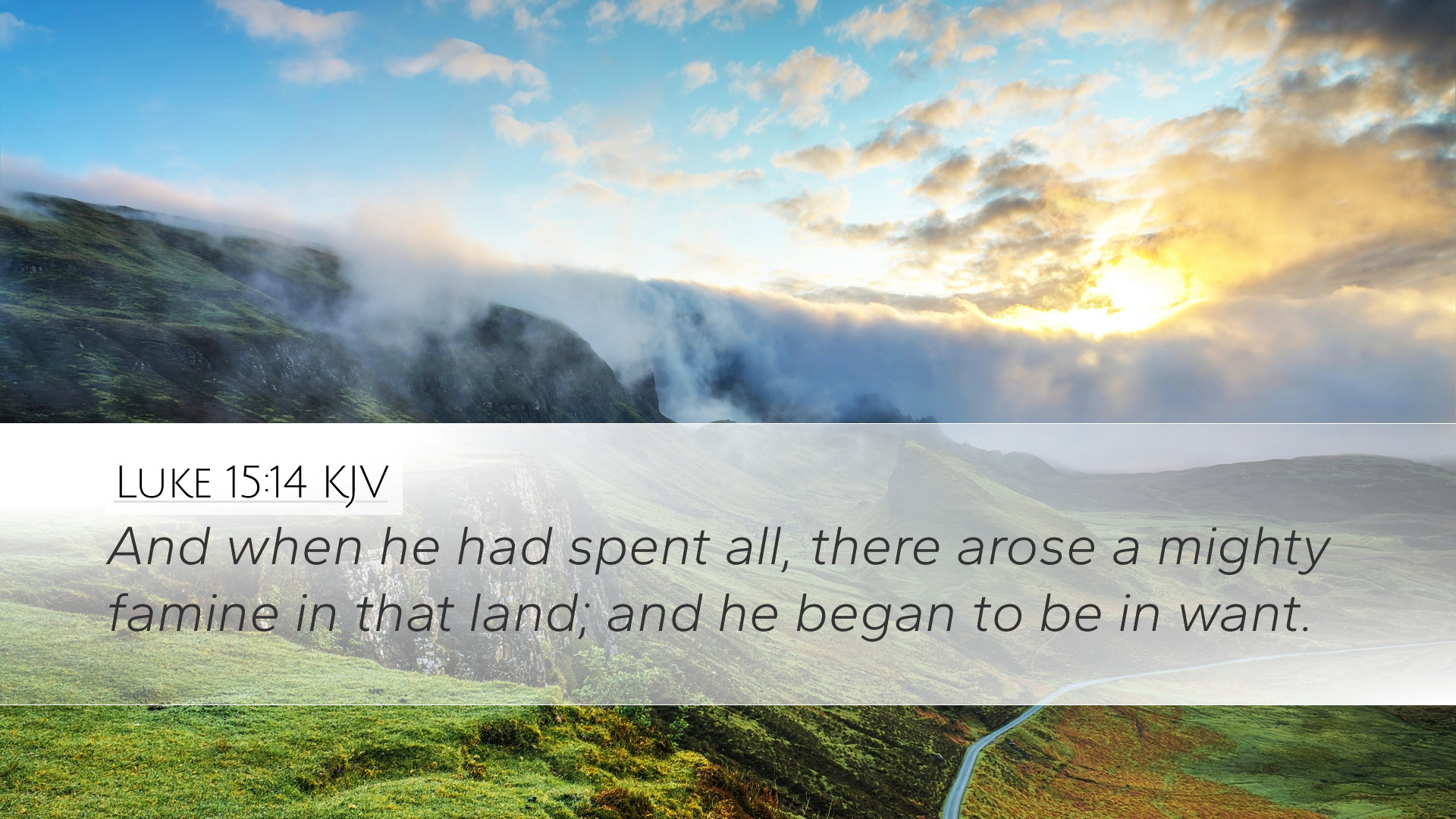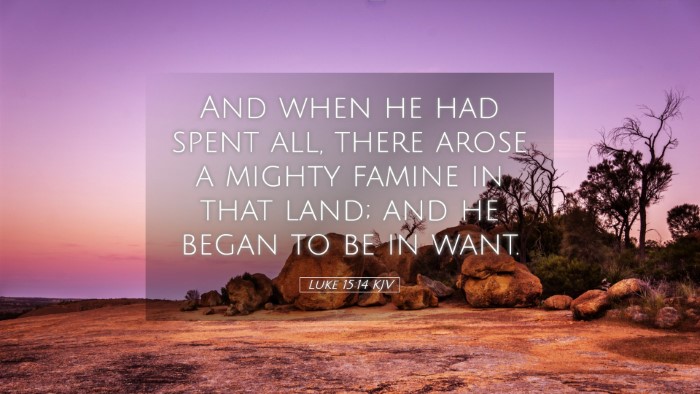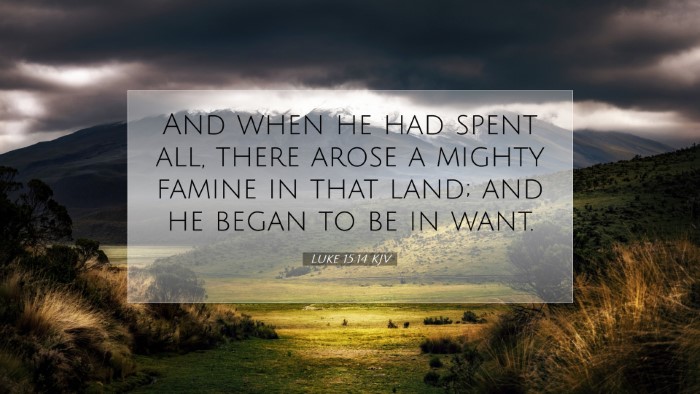Commentary on Luke 15:14
Luke 15:14 states, "And when he had spent all, there arose a mighty famine in that land; and he began to be in want." This verse is part of the Parable of the Prodigal Son, which conveys profound spiritual truths about human nature, sin, and redemption.
Contextual Overview
To fully grasp the significance of Luke 15:14, it is essential to understand the parable's context. The lost sheep, the lost coin, and the lost son illustrate God’s willingness to seek out and reclaim lost sinners. Each story heightens the urgency and depth of God's love and grace.
Spiritual Implications
The phrase "he had spent all" reflects the futility of seeking fulfillment outside of God. This aligns with Matthew Henry's interpretation of human folly in squandering resources on transient pleasures. The emptying of the young man's possessions leads directly to his spiritual bankruptcy.
-
Dependency on God:
Henry emphasizes that material wealth can quickly vanish, leaving an individual dependent on divine mercy.
-
The Severity of Need:
In the phrase "there arose a mighty famine," we witness not just physical want but also a deeper spiritual hunger, which is often brought on by straying from God's path.
Theological Insights
Albert Barnes draws attention to the symbolism evident in the young man's circumstances. The famine signifies the spiritual drought that afflicts those who pursue sin over righteousness. Barnes states that sin not only brings about earthly repercussions but ultimately leads one away from the abundance found in Christ.
Contrast With God’s Provision
In a state of want, the Prodigal is confronted with the reality of his choices. Adam Clarke notes that this represents a critical moment where the sinner must decide whether to return to the Father. The famine serves as a metaphor for the dissatisfaction and despair that inevitably accompany a life lived outside the will of God.
Practical Applications
This verse invites deep self-reflection for individuals, pastors, and theologians. Questions arise about one's priorities and the real fruits of lifestyle choices:
-
Evaluating Choices:
Are we investing our resources—time, talent, and treasure—into pursuits that align with God’s calling?
-
Recognizing Spiritual Hunger:
How aware are we of our spiritual hunger? Are we seeking to fill it with temporary pleasures or seeking God’s fullness?
Exegesis and Analysis
A close examination of the Greek text reveals the weight of the terms used. The word for "spent" is διασκορπίζω (diaskorpizo), which carries the notion of squandering or dispersion. Clarke argues that this speaks to a profound neglect of one’s spiritual resources, paralleling with the wastfulness seen in many believers today.
The Paradox of Famine
The notion of famine prompts us to consider the paradox of spiritual starvation in a world where every corner promises fulfillment. The Prodigal's journey is a reminder that external circumstances almost always reflect internal spiritual realities.
Conclusion
Luke 15:14 serves not merely as a historical account but as a theological and moral exhortation. It drives home the point that a life detached from divine providence leads to spiritual and often physical destitution. Responses to this teaching vary, but the consistent call remains—return to the Father, who awaits with open arms.
In summary, the insights from Henry, Barnes, and Clarke converge to remind us that the journey away from God is one of spiritual peril. The invitation, however, remains: redemption is always possible for those willing to turn back and seek His abundant life.


